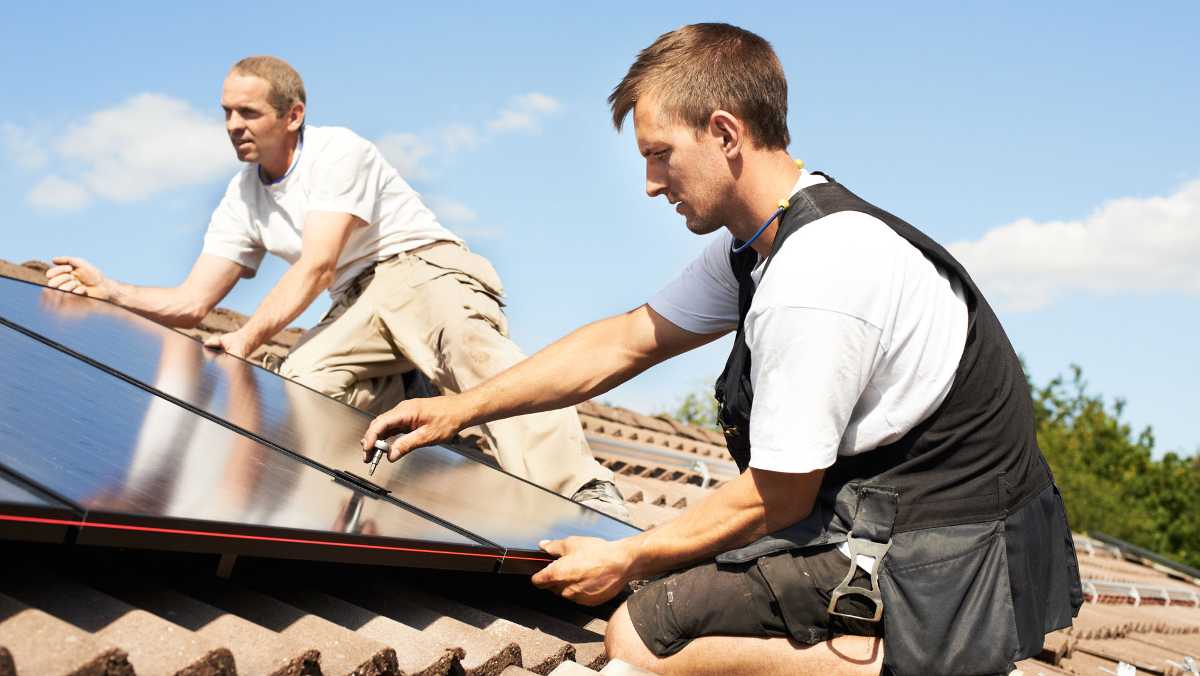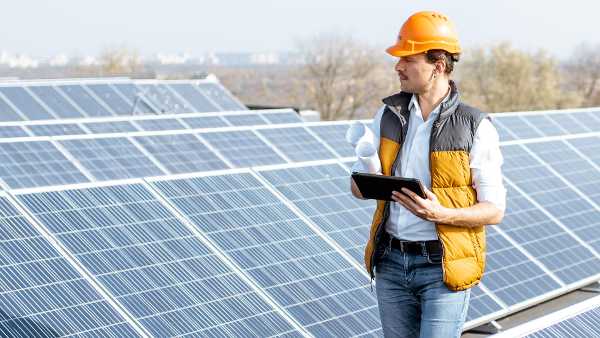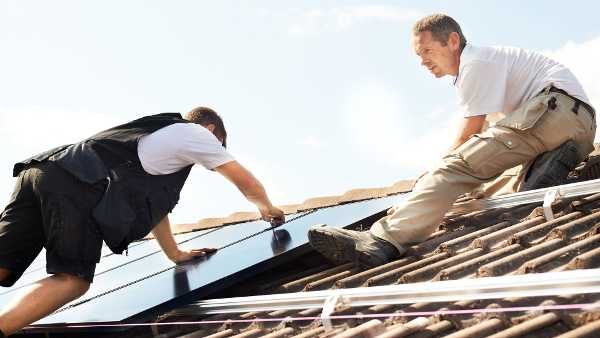Solar panels and selling back to the grid

- The basis
- 27 October 2022
- Edited 18 December 2024
- 3 min
- Starting
- Sustainability
Are you considering installing solar panels? You may be able to sell the extra energy back to the grid and so lower your energy bill by hundreds of euros. This is called the salderingsregeling in Dutch.
Solar energy you generate yourself, you use directly in your daily electricity consumption. Do you generate more power than you can use? Then that power is automatically returned to the energy company. You get a feed-in tariff for this, but more and more energy companies also charge you for the feed-in of power.
Netting scheme
On your annual accounts, your energy supplier will offset the solar power you feed back against the power you consume. This is called netting (salderen). An example: you supply 2,500 kilowatt hours (kWh) of electricity back to the grid in summer. This means that in winter, you can use 2,500 kWh of electricity without paying for it.
How much netting yields depends on your supplier, your electricity consumption, the number of solar panels and the feed-in costs, among other things. You only pay consumption costs, energy tax, and VAT on the energy you use.
Netting to end
The netting scheme ends in . From then on, you will no longer be able to offset your bills. However, you will still receive compensation for electricity you feed back. You will benefit most if you use the self-generated electricity yourself as much as possible. Or store it in a home battery and use it at other times.
Only for small consumers
The arrangement only applies to small consumers, with a business power connection of no more than 3x80 Ampères. This includes businesses that need a maximum of 55.2 kW power to run their highest energy-consuming machinery, like a sauna or heated pool. If your machinery requires more than 55.2 kW, you cannot make use of the salderingsregeling. Check with your energy provider if you are unsure.
Paying for feed-in
If your energy company charges you for feeding power back to the grid, you will pay a monthly amount. Some energy companies charge a fixed monthly amount, while others determine the amount based on the number of kilowatt-hours. For 10 solar panels, the feed-in costs average around €250 per year, according to Milieu Centraal's (in Dutch). Even with feed-in costs, net metering still saves you money on your energy bill.
Feed-in compensation
The feed-in compensation per additional kWh delivered back differs per energy supplier. Check the exact feed-in compensation per kWh generated from dozens of energy suppliers on comparison sites. It is still unclear what will happen to feed-in compensation when the net-metering scheme ends.
Possible scenarios
At the end of the year, there are 2 possible scenarios: you used more power than you supplied in total, or you supplied more power than you used.
More use than supply
Say you use 4000 kWh in a year. And you supply 3000 kWh to the grid. Your energy supplier will net out the 3000 kWh. You only pay for the remaining 1000 kWh. You pay nothing for the netted energy.
More supply than use
Say you use 2000 kWh in the entire year. And you supply 3000 kWh back to the grid. Your energy supplier will net out the 2000 kWh. That means you pay nothing at all: no power bill, no energy tax, and no sustainable energy surcharge. You will even receive payment from your energy supplier for the extra 1000 kWh you supplied.
Register for net metering
Do you want to make use of the salderingsregeling? Then you are required to notify the power grid administrators that you have solar panels. You can notify them via the website energieleveren.nl (in Dutch). The notification consists of your contact details, plus information about your power installation: the meter number of your electricity meter and your solar panels' capacity. It is an offence not to notify your solar panels. Also, your energy supplier may decide not to compensate you for solar power you have put back in the grid.
Schemes for the purchase of solar panels
Are you planning to invest in solar panels? Find out if you can apply for one of the subsidies or tax that make buying solar panels cheaper. Here are a few of the main ones:
-
Reclaim VAT
Reclaim the 21% VAT you have paid on the purchase and installation of solar panels from the Dutch Tax Administration (Belastingdienst). Your legal business structure determines how to go about reclaiming the .
-
Small projects investment credit (KIA)
The KIA allows you to deduct part of your investment in solar panels from your profit, and pay less income tax. How much you may deduct depends on how much you invested.
-
Eco-investment schemes
The Energy Investment Allowance EIA and the Environmental Investment Allowance MIA also allow you to deduct eco-investments from your profit, so you pay less tax.


